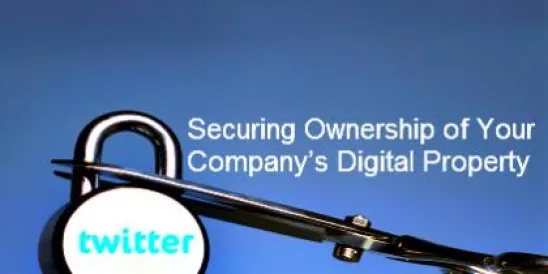A company has filed suit against its former employee regarding his continued use and control over the Twitter account @Phonedog_Noah. (Phonedog, LLC v. Noah Kravitz, 11-03474 (N.D. Cal.; Nov. 8, 2011)). The former employee left PhoneDog, LLC, keeping control of the Twitter account and taking the account’s 17,000 Twitter followers with him. Eight months later, PhoneDog filed suit arguing those followers constitute a customer list worth $340,000 ($2.50 per follower per month).
PhoneDog argues that the Twitter account is a customer list and intellectual property owned by the company and the continued use of the account constitutes misappropriation of trade secrets, intentional and negligent interference with prospective economic advantage, and conversion.
This case highlights the need for companies to proactively secure their digital assets, which include not only social media accounts, but also social media handles and personalized URLs, websites, domain names, and electronic publications such as blogs, podcasts, etc. that may have been acquired or created by their founders, employees, organization members, independent contractors, and others on behalf of the company. Employee agreements (and related agreements) have traditionally addressed ownership rights of physical property and intellectual property. However, digital property does not always fit neatly into either category of property and agreement language often does not expressly address the ownership of digital assets.
The PhoneDog case emphasizes the need for companies to revisit their social media policies and employee, organization member, and independent contractor agreements to ensure that their digital property ownership rights are secure.



 />i
/>i

